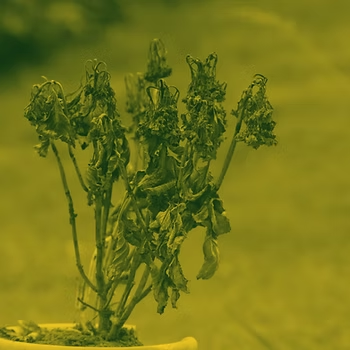"Those Damned Birds" by Emmy Teague
- Sep 18, 2022
- 4 min read

We didn’t think anything of it when the chickens started dying.
There were always problems with animals hunting our birds. We lived on a farm in the middle of woodlands- there were coyotes, foxes, feral cats, other farm dogs, all kinds of creatures that would like to sink their teeth into our little egg factories. There was even the occasional weasel. It didn’t bother us too much- despite the fact that nothing had ever gotten them before, we started closing up the feathery nuisances a little more securely each night. We double-locked the door, added a piece of wood here or there, and made sure that every single chicken was accounted for and safely roosting in the pen before we went to bed ourselves.
Nevertheless, we woke up to feathers and blood every morning for a week, and our flock was starting to look dangerously small. We would go out and the door would be listing to one side, a board would be wiggled aside or pried up, the lock would be twisted in on itself from the force with which it had been hit, a hole would be dug. Always something, every time. I noted the uneasiness of my grandparents at this reality every morning as whatever was killing our chickens was not in the slightest bit deterred by our locks and nails, but I thought little of it and assumed that they were upset about the loss of stock and good egg-laying chickens.
It wasn’t until two of our bantam silkies were killed that my grandmother started to really get angry. The deaths of Fancy and Bilbo (the first her favorite, the second my own beloved dark-feathered hen) were too much for her to take lying down, and so she commissioned my grandfather to sit vigil in the truck outside one night, his shotgun in his hands.
At the age of eight, I went along. I was too young, really, to understand what we were there to do. I understood that we were going to catch something that had eaten my sweet Bilbo, but it never occurred to me what the shotgun was for, the amount of blood that would be shed. Luckily, I was too young to make it long and fell asleep curled up beside my grandfather in the truck as he smoked and watched for whatever had been hunting to show up. I was never woken by a blast from his gun because the animal didn’t come that night, or the next night when he sat out there again.
He ignored my grandmother’s wishes and slept in ‘his own damn bed’ the night after that, and we woke to find feathers and gore splattered across our doorstep, as if to say, look what I can do. My grandmother cleaned it, sour-faced and cold as my grandfather puttered around the yard, cursing.
He replaced the hinges, put out live traps, poisoned food (and accidentally one of the feral cats that sometimes got into our trash), and still no wily coyote or clever weasel appeared and our flock decreased by the day. If he or my grandmother sat in the truck and watched, nothing was killed, but they had to work for a living and my grandmother was afraid of the darkness that crowded around the truck in the vigil she would have to keep alone. And so our chickens kept dying.
My grandmother, in a fit of rage, stormed into my room early one morning, feathers in her hair and blood staining the sleeves of her blue shirt. We are going to move these damn chickens, she snapped at me. Get your clothes on.
That day, we moved all of the chickens into my grandmother’s closet. We lined the floor and walls with plastic and made nests with newspaper on the shelves, and the birds clucked and fussed and tore the paper and some of the plastic to shreds, but would be safely ensconced in my grandparents’ bedroom during the dark hours where they would normally be killed. Satisfied, my grandmother sang and whistled for the rest of the day while my grandfather grumped that it was ridiculous and he wasn’t going to get any sleep with those goddamn birds clucking and scratching at the door all night.
There was no whistling or grumping the next morning, though, when we went outside to find the chicken coop destroyed. Wire and boards were thrown across the yard, straw almost like snow across the ground and the few eggs that had been left in the nests by accident shattered and smeared on the stones. Forty-pound cinderblocks were tossed into the long grass like they’d weighed nothing. I went to look at one of the blocks and the scratches carved into the concrete were deep enough that my eight-year-old fingers could almost entirely disappear into the hollows. I followed the shapes with my nails and felt cold in the early-morning air.
My grandfather was a quiet and grumpy man, my grandmother a sweet and slightly nervous woman, but both were struck dumb as I wandered through the destruction and walked along what had once been the roof but was now a crumpled piece of tin. They stood and stared at what was left of the coop that had stood for the better part of twenty years in the same spot, outlasting storms and hail, even a tree falling in the mid-eighties, and every predator that it had encountered until this moment.
That night, my grandmother released the chickens to the darkness. She cleaned up the carnage the next morning without saying a word, and they never kept chickens again.





Comments